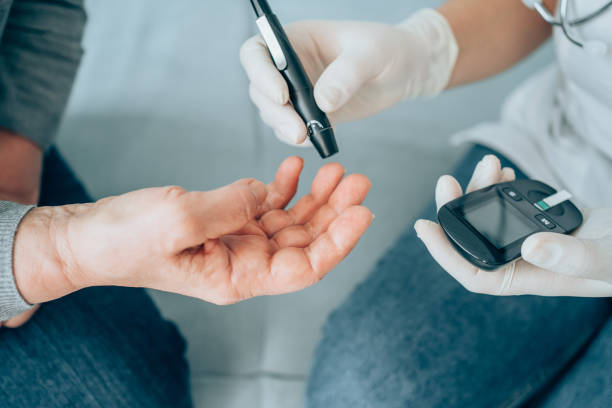Type 2 diabetes, a chronic condition affecting millions globally, disrupts how your body regulates blood sugar. While the body naturally produces insulin, a hormone crucial for sugar (glucose) absorption, type 2 diabetes presents a challenge. If you looking for type 2 diabetes treatment then you can take Metformin Hcl 500 mg to treat type 2 diabetes.
Understanding Blood Sugar Regulation: The Key Players
Imagine your body’s cells as tiny houses, and glucose (sugar) as the fuel they need for energy. Insulin acts as a key that unlocks the doors, allowing glucose to enter the cells and be used for energy. In type 2 diabetes, this system malfunctions. Take Metformin Hydrochloride 500 mg to cure type 2 diabetes.
The Culprit: Unveiling Insulin Resistance or Deficiency
There are two main reasons why type 2 diabetes develops:
Insulin Resistance: The “doors” of your cells become resistant to the insulin key, making it difficult for glucose to enter.
Insulin Deficiency: The body might not produce enough insulin keys to unlock the cell doors for all the available glucose circulating in the bloodstream.
Effective Management Strategies: Taking Control of Your Health
Fortunately, it is a manageable condition. Here are some key strategies to help you take control of your health:
Dietary Modifications: Focus on a balanced diet rich in fruits, vegetables, and whole grains while limiting sugary drinks and refined carbohydrates. Refined carbohydrates are quickly broken down into sugar, causing blood sugar spikes. Choose complex carbohydrates like whole grains and legumes, which provide sustained energy.
Regular Exercise: Aim for at least 150 minutes of moderate-intensity exercise or 75 minutes of vigorous-intensity exercise per week. Physical activity helps your body utilize glucose more effectively, improving blood sugar control.
Weight Management: Losing weight, even a modest amount, can significantly improve insulin sensitivity and blood sugar levels. Excess weight, particularly belly fat, contributes to insulin resistance.
Blood Sugar Monitoring: Regularly monitoring your blood sugar levels allows you and your doctor to assess your treatment plan’s effectiveness and make adjustments as needed.
Medication: Your doctor may prescribe medications like oral medications or injectable insulin to help regulate blood sugar levels. These medications work in various ways to either increase insulin production, enhance insulin sensitivity, or promote the removal of glucose from the bloodstream.
The Potential for Reversal: Can Type 2 Diabetes Be Undone?
While there’s no cure for it, achieving remission, often referred to as reversal, is possible for some people. Remission means that your blood sugar levels are within a normal range without the need for medication. Here’s what you need to know about reversal:
Lifestyle Changes are Key: Significant and sustained lifestyle changes, primarily focusing on diet and exercise, are crucial for achieving remission.
Early Intervention Matters: The earlier you start managing your type 2 diabetes, the greater your chances of achieving remission.
Weight Loss is a Major Factor: Losing weight, particularly belly fat, can significantly improve insulin sensitivity and potentially lead to remission.
Individualized Approach: The possibility of reversal depends on various factors, and success rates can vary. It’s crucial to work with your doctor to develop a personalized plan.
Maintaining Remission: A Lifelong Commitment
Even if you achieve remission, it’s important to maintain healthy lifestyle habits to prevent the return of high blood sugar levels. Regular check-ups with your doctor and adherence to a healthy lifestyle are essential for long-term success.
Living Well with Type 2 Diabetes
A diagnosis of it doesn’t have to limit your life. By adopting healthy lifestyle changes, working closely with your doctor, and potentially achieving remission, you can manage your diabetes effectively and live a full and active life.
Remember
Early detection and management are crucial for preventing complications associated with it.
Consistent and sustainable lifestyle modifications are the cornerstone of effective management and potential reversal.
Open communication and collaboration with your doctor are essential for achieving optimal blood sugar control.


